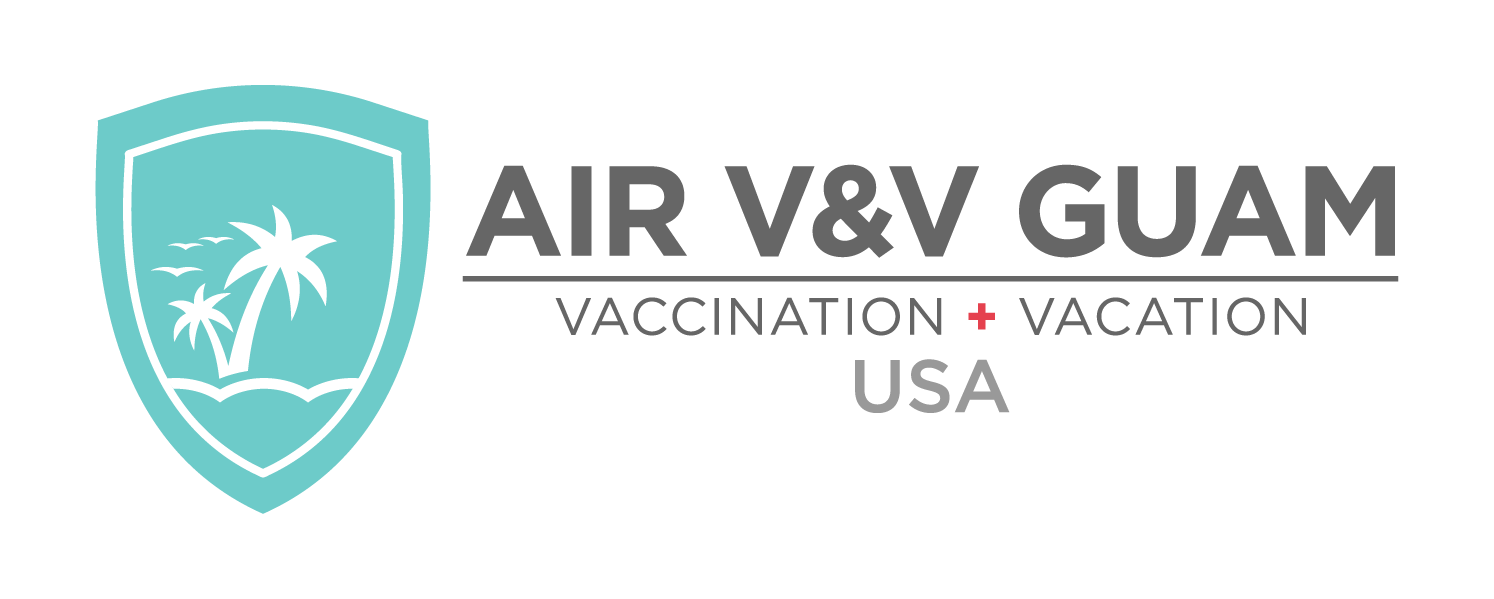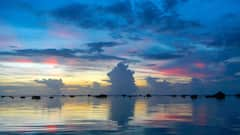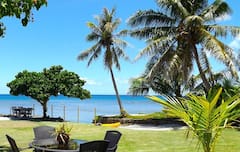Guam may be one of the islands on your beach bucket list, but this unincorporated US territory is more than just a summer paradise for beachgoers - it’s a perfect destination for history buffs, too!
Guam was invaded by Japan in 1941, and this invasion lasted until 1944 when American troops won the second Battle of Guam. Short as the period may seem, it still left its mark. Some members of the older generation speak Japanese, and there are numerous historical sites across the island. If you’re fascinated by World War II sites, there’s plenty to be found here. Keep reading to learn about the World War II historical sites in Guam.
Air V&V Guam

Summer 2021 might just be the perfect time to visit Guam. The launch of their Air V&V program makes it an appealing destination now since you’ll not only enjoy beaches and tax-free shopping, but you’ll also get a chance to get vaccinated while you’re at it!
Stay in one of the partner hotels and book your vaccination appointment online. A local health provider will meet you at your accommodation to administer the first dose - Moderna, Pfizer, or Johnson & Johnson, you’re free to choose though it’s subject to availability. This is eligible for travelers aged 12 and up, and all you’ll need is a photo ID.
Air V&V Guam
Click below for more information about Guam’s Air V&V (vaccination and vacation) program.
1. As Sombreru Pillboxes
As Sombreru Pillboxes were built by the Japanese forces during the invasion of Guam. These are defensive fortifications spread out across three locations in Tumon Bay, and they were made to fight off forces coming from the sea. The location of Pillbox I is unknown, but Pillbox II is located in Tumon Beach, and Pillbox III can be found in Matapang Beach Park. The ruins of these fortifications are listed under the US National Register of Historic Places.
As Sombreru Pillboxes
Address: Tumon, Guam
2. Asan Invasion Beach

Another place listed in the National Register of Historic Places, Asan Invasion Beach is known as one of the American military’s landing zones when they arrived to reclaim the island in the Battle of Guam. The battle resulted in over 1,700 casualties among the Marine and Army soldiers, but it was a victory for the Americans. From Asan Invasion Beach, it’s just a few minutes on foot to War in the Pacific National Historical Park.
Asan Invasion Beach
Address: Asan, Guam
You might be interested in these Airbnbs!
3. Chaqui'an Massacre Site Memorial

This memorial marks the place where, in 1944, 45 Chamorro men between the ages of 15 to 76 years old were beheaded by the Japanese. The men were made to carry ammunition for the Japanese forces and were killed shortly after. American soldiers found the bodies after Guam had been liberated. The site is located in the northernmost village of Yigo and was only recently listed under the National Register of Historic Places.
Chaqui'an Massacre Site Memorial
Address: Chalan Emsley, Yigo, Guam
4. Tweed’s Cave
Tweed’s Cave is named after an American Navy radioman named George Tweed, who was one of six Americans who evaded capture when the Japanese invaded the island. Tweed was helped by a number of Chamorro families, and one of his hiding spots was a cave on the property of a local. Do note that Tweed’s Cave is quite difficult to get to, as it’s in a remote place deep in the jungle and up on a cliff.
Tweed’s Cave
Address: Unnamed Road, Dededo, Guam
5. Hagåtña Tunnels
The Japanese forces anticipated an American re-invasion, so they set about digging tunnels all over the island. Two tunnels are on the wall of a cliffside in Senator Angel Leon Guerrero Santos Latte Stone Memorial Park.
The caves were supposedly built as storage or to use as shelter in the event of an air raid, but one of the caves was also used as a prison of sorts for Chamorros suspected of helping George Tweed. They were held here against their will and denied food and water while they were interrogated.
Hagåtña Tunnels
Address: Angel Santos Memorial Park, Hagåtña, Guam
6. Mount Santa Rosa
Editor's Note: There's no photo available at the time of writing
An extinct volcano located in Yigo, Mount Santa Rosa today is remembered as one of the battlefields during the second Battle of Guam. During the final days of the Japanese occupation, the 77th Infantry Division secured Yigo, which allowed them to advance inward. By the next day, they had taken over the northern half of Mount Santa Rosa. Today, from this site, visitors can enjoy a view of Andersen Air Force Base.
Mount Santa Rosa
Address: Yigo, Guam
7. Piti Guns

Another remnant of the war leftover by the Japanese, Piti Guns are coastal defense guns that were said to have a firing range of 16 kilometers (10 miles). The guns were meant to shoot down approaching ships, but they were never actually fired because they weren’t operational by the time the Americans came to retake Guam. The guns can be viewed at War in the Pacific National Historical Park.
Piti Guns
Address: War in the Pacific National Historical Park, Piti, Guam
8. Agat Unit - Ga'an Point

Agat Village is significant to Guam’s World War II history because its beach saw heavy gunfire during the second Battle of Guam. The Japanese had heavily fortified this area with pillboxes and trenches, and the Americans needed to use Ga'an Point as a landing site to offload the supplies needed in order to drive the Japanese back as they advanced. The point-blank range meant that American troops suffered casualties from the first day. Some defensive weapons used by the Japanese, along with a concrete blockhouse, are preserved here today.
Agat Unit - Ga'an Point
Address: Agat, Guam
9. South Pacific Memorial Peace Park
The 15-meter (50-foot) monument at South Pacific Memorial Park in Yigo marks the burial spot of the remains of some Japanese soldiers who died during the Battle of Guam. Meant as a symbol of peace, the monument depicts a pair of hands clasped in prayer. This site - built and and maintained by donations from the Japanese - commemorates all the lives lost during World War II.
South Pacific Memorial Peace Park
Address: Milalak Dr, Yigo, 96913, Guam
Website: South Pacific Memorial Peace Park
Opening hours: 9am - 5pm (daily)
10. Asan Bay Overlook Memorial
Editor's Note: Photo taken from the establishment's official social account
In 1994, 50 years after Guam was liberated from the Japanese, the memorial of Asan Bay Overlook was completed. Providing scenic views of the landing sites and decorated with bronze sculptures and a Memorial Wall of Names, this serves as a place to remember the lives lost and the battles fought during World War II. There are thousands of names etched on the wall, from US soldiers to Chamorros who died during the occupation.
Asan Bay Overlook Memorial
Address: 6, Asan, Guam
Website: Asan Bay Overlook Memorial
Small island, rich history
From being a Spanish colony to surviving a Japanese occupation, Guam has a rich history that many may not know about. Once you step foot on the island, you’ll see traces of its past in the culture, food, and even the language. Many of these Guam historical sites are accessible to the public, so be sure to add some of them to your itinerary!
Air V&V Guam
Click below for more information about Guam’s Air V&V (vaccination and vacation) program.
History
Get Trip101 in your inbox
Unsubscribe in one click. See our Privacy Policy for more information on how we use your data



















Create an account to